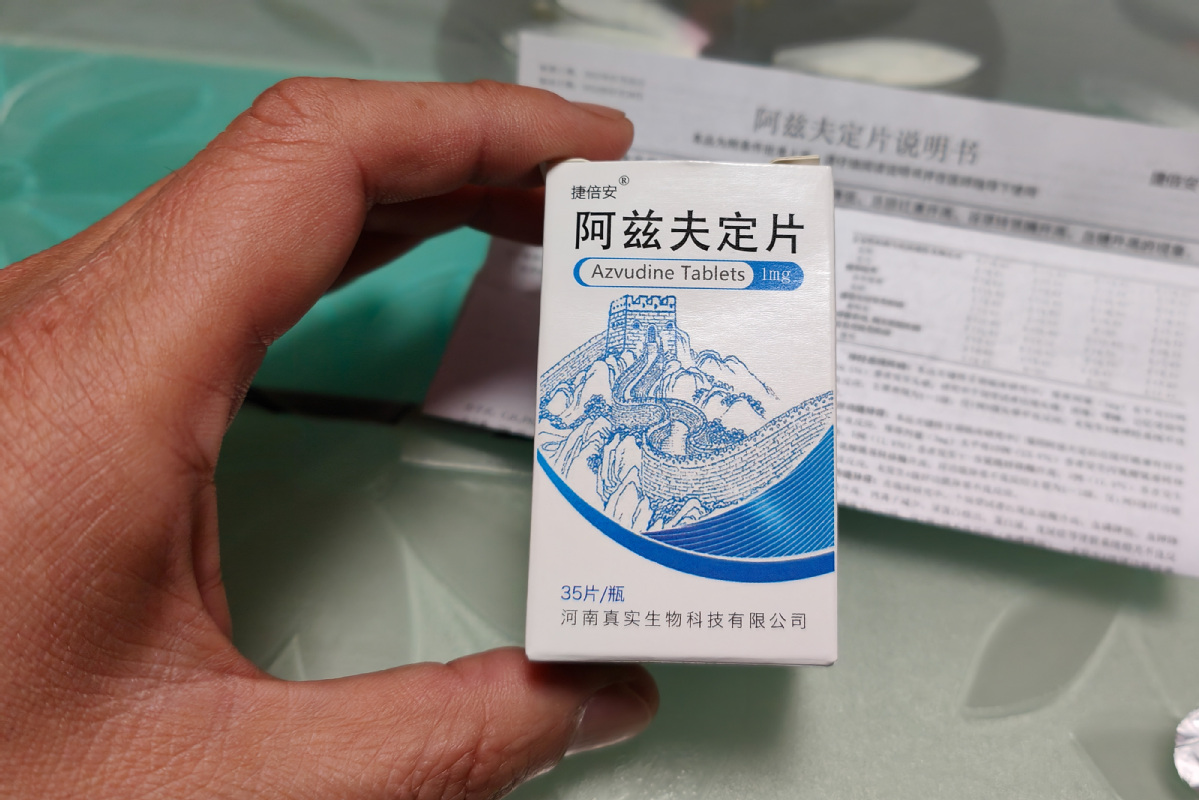Domestic biomedicine firms pushing innovation
By LIU ZHIHUA | China Daily | Updated: 2023-02-03 09:14

Domestic pharmaceutical enterprises are stepping up efforts for high-quality innovations to propel drug research and development in pursuit of high-quality growth, according to experts and business executives.
One major example came from the large category of homegrown treatments and vaccines for the prevention and treatment of COVID-19, among which some have shown better efficacy and safety than their foreign counterparts.
China National Pharmaceutical Group Co Ltd, or Sinopharm, announced recently it had developed four Omicron-specific vaccine candidates, including inactivated, recombinant protein, and mRNA varieties, as well as an inhalable monoclonal antibody for COVID-19 prevention.
The company successfully developed the world's first inactivated COVID-19 vaccine in 2020, which has been approved for use by more than 119 countries, regions and international organizations with supplies totaling more than 3.5 billion doses worldwide.
Shanghai Junshi Biosciences Co Ltd announced in January that a study led by Ruijin Hospital, an affiliate of the Shanghai Jiao Tong University School of Medicine, indicated that an oral antiviral drug co-developed with several domestic organizations for treating COVID-19 has a shorter time in sustained clinical recovery with fewer safety concerns compared with Paxlovid, the antiviral COVID-19 pill developed by United States-based Pfizer. The drug was approved for market launch in China on Saturday.
So far, three oral antiviral medicines developed by Chinese drugmakers have been approved by China's health regulator to treat the disease.
"Due to its large population, rapid economic development, supersized market, and rich medical, scientific and technological resources, China provides excellent conditions for the innovation and development of biomedicines," said Bi Jingquan, executive vice-chairman of the China Center for International Economic Exchanges.
The biomedicine sector in China is in early development stages, but has shown vigorous development momentum and vitality, he said.
Industry people said deepening drug regulatory reforms in China encourage innovations focusing on patient demand and clinical value, with an emphasis on innovation-driven development, the increasing population of the elderly and emerging global opportunities — all of which combine to increase the presence of Chinese pharmaceutical enterprises in both domestic and global markets.
"We are witnessing a fast-growing biopharma and pharmaceutical industry in China. From 2015 on, the industry has upgraded from generic-focused to innovation-focused," said Wei Dong, CEO of EdiGene, a Beijing-based biotech company developing genome-editing technologies.
"In the past three years, the industry has developed from 'me-first' and 'me-better' to 'first-in-class' and grasped the latest trends and global hot topic of cell and gene therapy," he added.
A report released by the IQVIA Institute for Human Data Science in May 2022 showed increasing amounts of oncology research and development were occurring in China, which was responsible for 19 percent of the global oncology pipeline, up from 6 percent in 2015.
It highlights the important role that companies headquartered in China will play in the development of new products globally, the report said.
Chinese biotech firm Ascentage Pharma is expecting to expand the indication of its first approved medicine to treat more types of chronic myeloid leukemia patients as soon as this year, as it has already finished several key clinical trials, according to Yang Dajun, chairman and CEO of the company.
Chronic myeloid leukemia, which affects around 20,000 new patients each year in China, is in principle a treatable malignancy, but drug resistance is lowering survival.
Designated as a project under a major national innovative drug development and manufacturing program, the drug is the first of its kind in China and the second in the world with clear global best-in-class potential, as a third-generation treatment for chronic myeloid leukemia harbors the T315I mutation.
Chinese pharmaceutical companies are also accelerating their going-global strategies.
During the first half of 2022, Chinese pharmaceutical enterprises out-licensed 26 drug pipelines to foreign enterprises, including multinational giants like Roche, Novartis, Merck and Eli Lilly. Meanwhile, many innovative medicines developed by domestic enterprises have entered Phase 2 and Phase 3 clinical trials in developed markets, according to the China Pharmaceutical Innovation and Research Development Association.
The corresponding figures were 9,24 and 41 in 2019, 2020 and 2021, respectively, the association said.
- Guangzhou adds 64 new domestic and overseas listed companies
- The eighth round of Sino-Japanese entrepreneurs and former high-level officials dialogue held online
- Full text of the report to the 20th National Congress of the Communist Party of China
- China-South Asia Expo opens in China's Yunnan
- Shanghai overcomes challenges with resilience
























